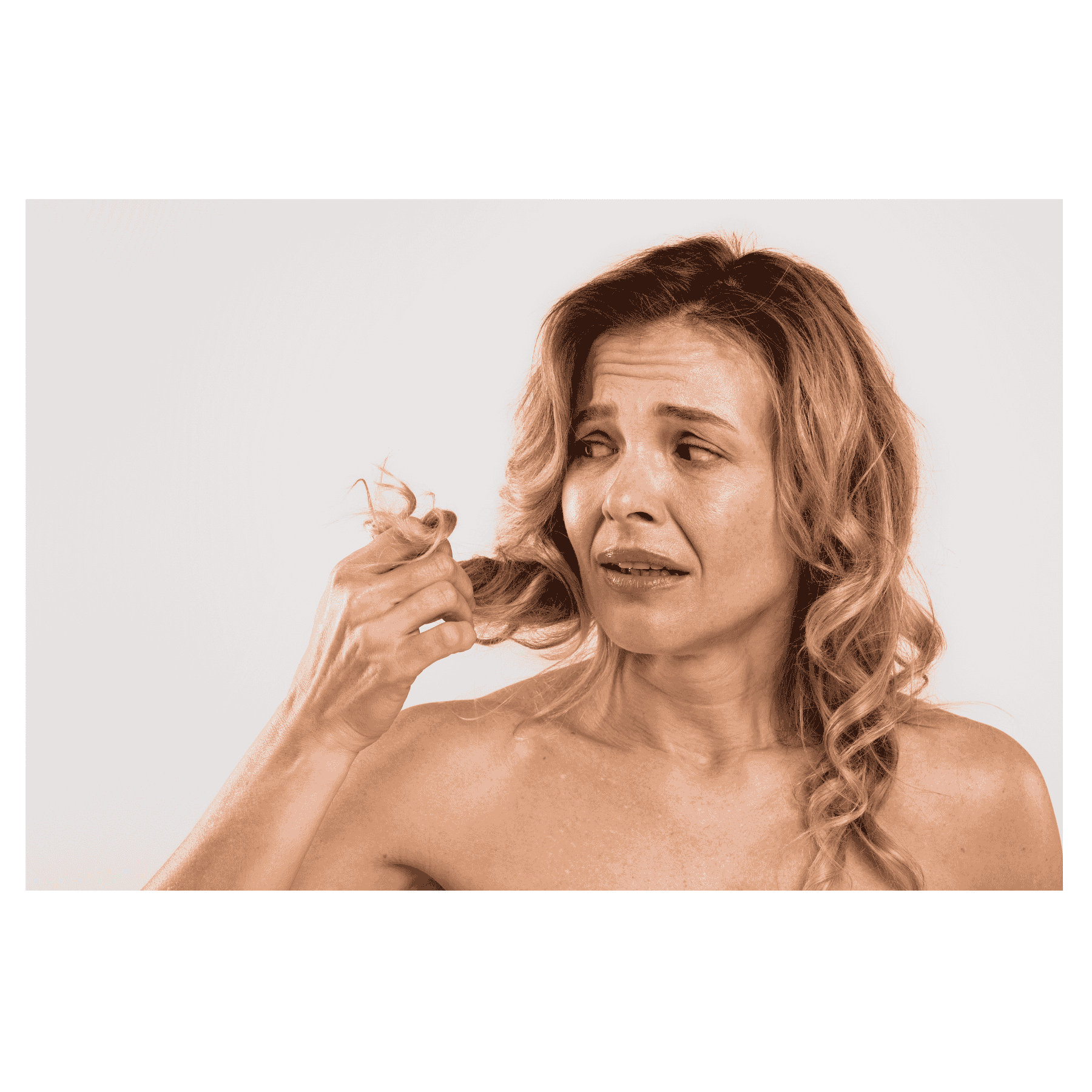
Does Hard Water Affect Hair?
Hard water is water that contains high levels of minerals like calcium and magnesium. These minerals can build up on your hair, making it dry, brittle, and difficult to manage. Hard water can also cause scalp irritation, dullness, and faded hair colour. Fortunately, solutions like water filters, clarifying shampoos, and moisturising treatments can help protect your hair.
What is Hard Water?
Defining Hard Water
Hard water is water that contains a high concentration of minerals, mainly calcium and magnesium. It is measured in grains per gallon (GPG) or parts per million (PPM), with anything above 7 GPG considered hard.
How Hard Water is Measured
Water hardness is tested using DIY testing kits or local water reports provided by utility companies.
Hard Water vs. Soft Water
Soft water has low mineral content, allowing shampoos to lather easily and preventing mineral build up. Hard water, in contrast, can leave residue on hair and skin, leading to dryness and irritation.
How Does Hard Water Affect Hair?
Mineral Build-up
Calcium and magnesium deposit on the hair shaft, creating a layer that blocks moisture and nutrients. Over time, this build-up can lead to dull, lifeless hair that lacks natural bounce and softness.
Scalp Issues
Mineral residue can irritate the scalp, causing itchiness, flaking, and dandruff. In some cases, build-up can even contribute to scalp conditions like seborrheic dermatitis.
Hair Dryness and Brittleness
Hard water strips natural oils from hair, making it dry, brittle, and prone to breakage. This can be especially problematic for people with curly or textured hair, as they naturally have drier hair types.
Changes in Hair Colour and Texture
Colour-treated hair may fade faster, and hair texture can become rough and unmanageable due to mineral build-up. Blondes may experience brassiness, while darker hair colours may appear dull and lack vibrancy.
Reduced Lather and Product Effectiveness
Hard water makes it difficult for shampoos and conditioners to lather, reducing their effectiveness in cleansing and moisturising hair. This often leads to the overuse of products, which can contribute to further build-up.
Signs of Hard Water Damage in Hair
-
Dullness and Lack of Shine – Hair looks lifeless due to mineral deposits blocking natural oils.
-
Tangling and Knots – Hard water can make hair coarse and difficult to detangle.
-
Split Ends and Breakage – Hair becomes fragile and breaks more easily.
-
Frizz and Flyaways – The lack of moisture leads to frizz and unmanageable hair.
-
Dry, Itchy Scalp – The scalp can become dry and irritated due to mineral build-up.
-
Changes in Hair Colour – Hard water can cause brassiness in blonde and grey hair, and make dyed hair fade quickly.
-
Increased Hair Shedding – Excessive dryness and brittleness can cause hair to shed more than usual.
How to Protect Your Hair from Hard Water
Using a Water Softener
Installing a whole-house water softener can remove excess minerals and improve hair health. This is a long-term solution that benefits overall water quality.
Installing a Shower Filter
A shower filter reduces calcium and magnesium in water, making it gentler on hair. These filters are easy to install and require regular replacement for optimal effectiveness.
Clarifying Shampoos
Use once a week to remove mineral build-up and restore shine. Look for ingredients like acetic acid, citric acid, or EDTA to effectively break down mineral deposits.
Apple Cider Vinegar Rinses
Mix 1-2 tablespoons of apple cider vinegar with a cup of water and rinse hair to remove residue and balance pH. This natural remedy helps restore shine and smoothness to hair affected by hard water.
Chelating Shampoos
Stronger than clarifying shampoos, chelating shampoos help remove stubborn mineral deposits. Use sparingly to prevent over-drying, as they can be quite strong.
Leave-in Conditioners and Moisturisers
Hydrate hair with leave-in conditioners to combat dryness and brittleness. Look for ingredients like shea butter, coconut oil, and aloe vera for maximum hydration.
Using Distilled Water for Final Rinse
A quick rinse with distilled water can help wash away mineral residues. This is a great option for people who travel frequently or don't have access to filtered water.
Choosing the Right Products for Hard Water
Shampoos for Hard Water
Look for shampoos with chelating agents like EDTA to help remove mineral build-up. Sulphate-free formulas can also help maintain moisture balance.
Conditioners for Hard Water
Opt for deeply hydrating conditioners with ingredients like shea butter, argan oil, or coconut oil. These help lock in moisture and counteract the drying effects of hard water.
Hair Masks and Treatments
Use moisture-rich hair masks weekly to replenish lost hydration and strengthen hair. Keratin-infused treatments can also help repair damage caused by mineral build-up.
Frequently Asked Questions (FAQs)
1. How do I know if I have hard water? If your hair feels dry, brittle, or lacks lather when washing, you may have hard water. You can confirm by using a test kit.
2. Can hard water cause hair loss? While hard water doesn't directly cause hair loss, it can weaken hair over time, leading to breakage and increased shedding.
3. How often should I use a clarifying shampoo? Use once a week to remove build up without stripping essential oils.
4. Are there home remedies for hard water hair damage? Yes, apple cider vinegar rinses and deep conditioning treatments can help restore hair health.
Conclusion
Hard water can damage hair by making it dry, brittle, and unmanageable, but solutions like water softeners, clarifying shampoos, and hydrating treatments can help. By recognising the signs of hard water damage and using the right products, you can keep your hair healthy and strong. If you're struggling with persistent hair issues, consult a hair care expert for personalised advice
More Water Softener info we think you'll love
- Understanding Hard Water: Causes, Effects, and Solutions
- Does Boiling Water Reduce Hardness?
- Which UK Areas Have Soft Water?
- Is There a Way to Soften Water without a Water Softener?
- Is There an Alternative to a Water Softener?
- How to Convert Hard Water to Soft Water Naturally?
- Is Softened Water Safe for Radiators?
- Why Is a Water Softener Used?
- Does Lemon Make Hard Water Soft?
- What Happens If You Drink Hard Water Every Day?


Leave a comment